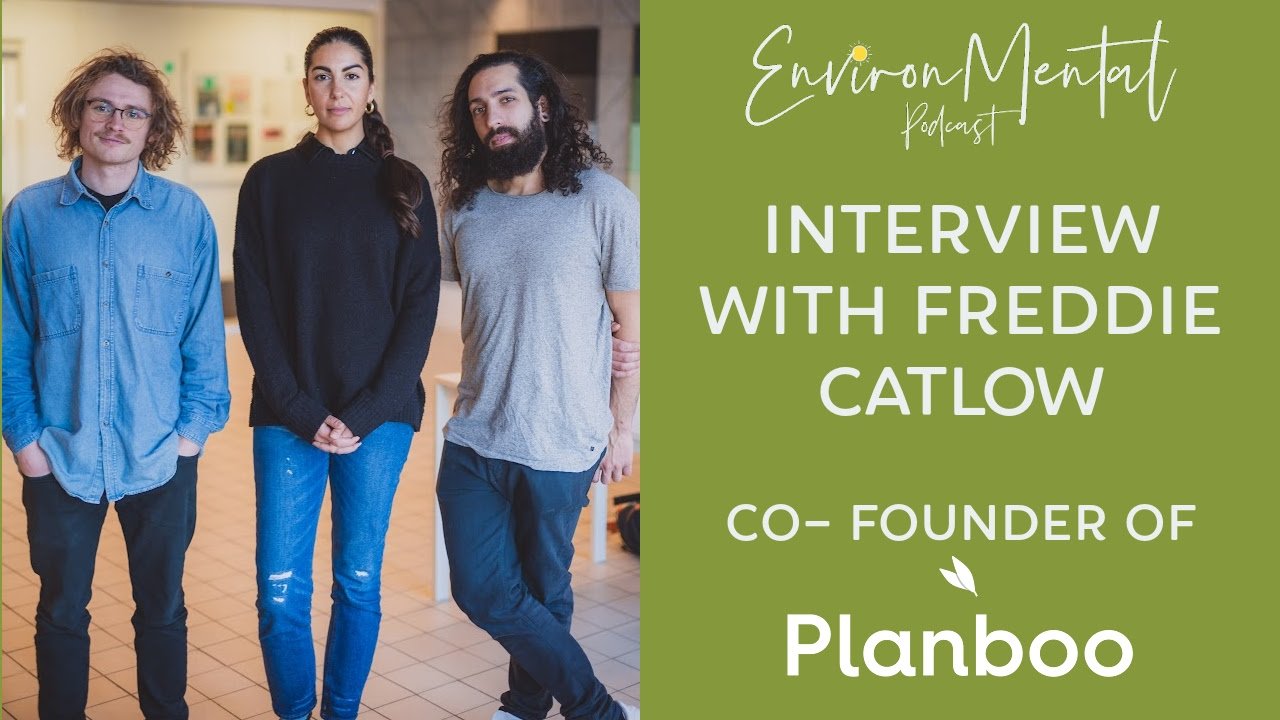This episode of EnvironMental was so much fun – and so informative – thanks to our guest, Freddie Catlow. He’s the enigmatic and (self described) bamboo-obsessed co-founder of Planboo. Listen in and you’ll hear us join his obsession and as he teaches us about Bamboo and biochar!
Why Bamboo Is Special
Bamboo is a grass. That means can be harvested over and over again because the life of the plant lives in its roots – unlike a tree that can really only be harvested once. Further, it’s the fastest growing land plant we know about. Freddie told us that in optimal conditions, bamboo can grow up to a meter every day.
And, okay the growing power of bamboo is great because you can process it into just about any consumer good. We talked a little bit about how incredible bamboo is in our podcast about sustainable fabrics. The long and short there – it’s great – but it can take a lot to process, so it’s often subjected to a chemical process that isn’t great for the environment. (bummer, and totally not bamboo’s fault!)
Another, less well known use for Bamboo is turning it into a different form, one that acts as a carbon sink.
A carbon sink is something that absorbs more carbon from the atmosphere than it releases.
All biomass if left untreated will breakdown overtime, releasing the carbon that was once stored inside of it.
47% of the dry weight of bamboo is carbon, by pyrolizing it into biochar the plant material is turned into a stable state, reducing the chance of degradation and the carbon being released.
So if you turn bamboo into biochar, like Freddie and Planboo, suddenly you can amend your soil with an incredible, nutrient dense, chemical free fertility enhancer!
What Is Biochar?
Alright, the obvious question here. What the heck is biochar? We asked too, and boy did Freddie Catlow have an answer that blew us out of the water!
Bamboo (or planboo) biochar is made with the bamboo biomass is put through a process called pyrolyzation. – We make biochar from different sources of plant waste, cinnamon sticks and bamboo.
Pyrolyzation is where the biomass is heated at extremely high (upwards of 400 ° C) with limited oxygen present. Carbon when in this form breaks down slowly (like over hundreds or thousands of years) and can be considered a “permanent” or “durable” carbon sink.
What Can Biochar Be Used For?
Okay, biochar. – what can it be used for? Well – we’re glad you asked! Because Planboo suggests mixing it into your soil amendment to improve the quality of your soil over time. Here’s the benefits of adding biochar to your soil:
It holds liquid really well
This has several really lovely benefits. For one thing, if your soil holds more water, you have to water less often – helping you save on this important resource.
You also have the chance, when you’re amending the soil, you can soak the biochar in a liquid fertilizer to give it a little boost. (Or as Freddie Catlow explained to us, to help wean your plants off the chemicals they’re addicted to!)
Biochar creates space in the soil
In a lot of agriculture sites, the biggest issue is desertification. This is an issue where there’s no health in the soil and it becomes super compact. Adding a biochar carbon sink to your soil helps to aerate it. This creates space for the roots of your plants to grow through. Plus it offers a cozy place for healthy soil microbes to take up residence!
It speeds up composting
Like really speeds it up. Because it’s a dormant substance that doesn’t break down when it gets hot, it helps keep airflow in compost. It also soaks up liquids and creates space for the microbes and decomposers. All together – biochar can help make organic fertilizer – fast. And then it stays in the fertilizer when you amend your garden to help do the same thing there!
Using the heat from the process of making biochar to dry herbs
This is less about the uses of biochar itself, and more about using the heat to save other materials. Freddie Catlow told us that one of the main places Planboo is working with biochar right now is in Sri Lanka on tea plantations.
Currently, the tea leaves are dried with a woodfired furnace – which burns tree wood to ash. By pyrolizing it into biochar you have a useful byproduct – the biochar and the heat generated can be used to dry tea leaves. A huge win – win for sustainability!




